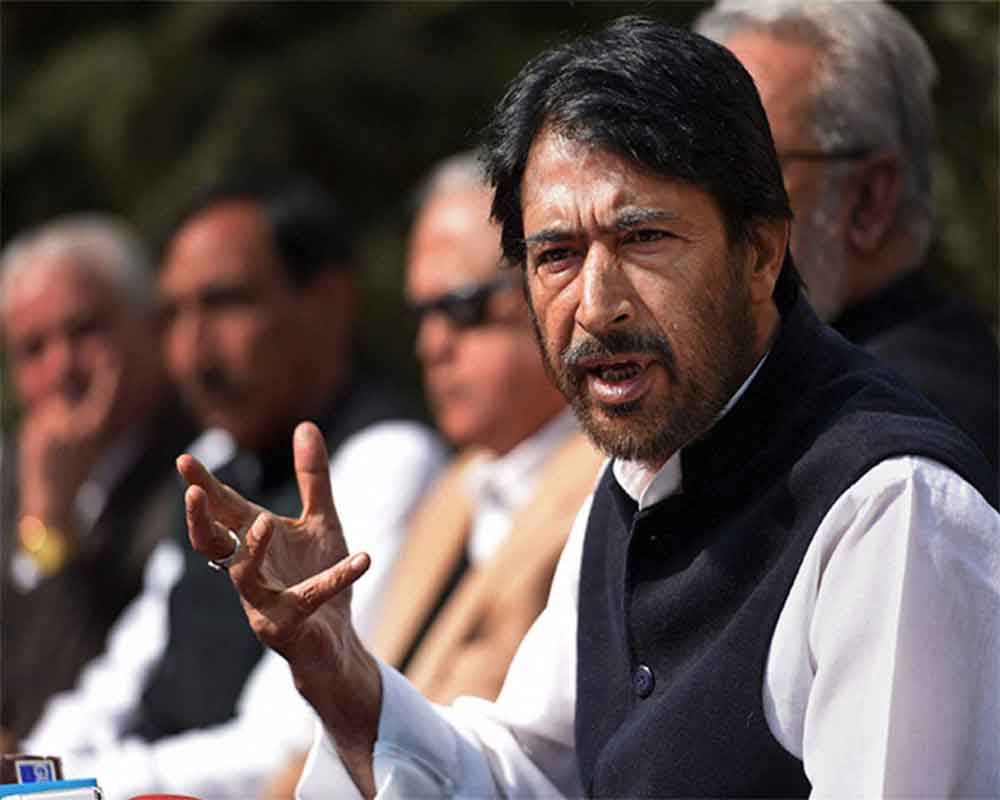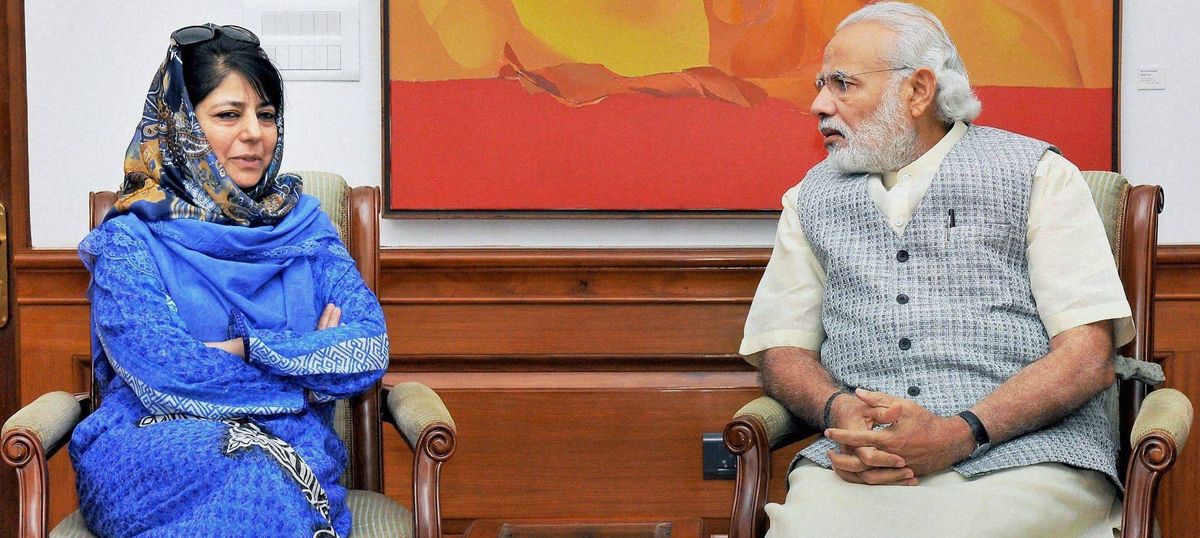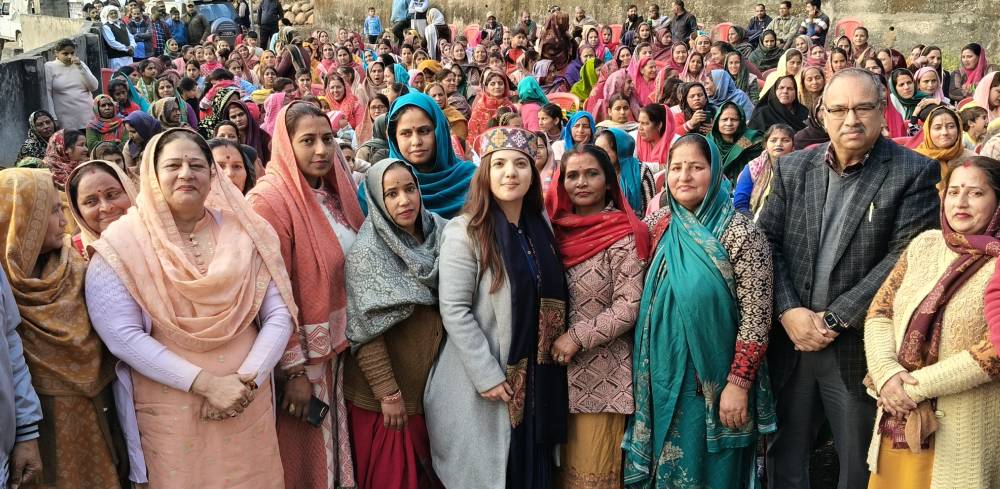A Battle Beyond Numbers: Why the Rajya Sabha Election in J&K Matters
By: Javid Amin | 13 October 2025
The Rajya Sabha election in Jammu and Kashmir is not just another routine electoral event—it has emerged as a defining moment in the region’s evolving political landscape. For the first time since 2021, four crucial Upper House seats are set to be filled, and the outcome is expected to reshape alliances, expose fault lines, and test political loyalties.
Congress leader Ghulam Ahmad Mir has taken a firm stand, declaring that “no non-BJP MLA will support BJP candidates in the upcoming Rajya Sabha elections.” His statement is more than rhetoric—it’s a strategic political signal aimed at both the ruling and opposition benches.
The vote, scheduled for October 24, comes at a time when political equations in J&K are fluid, alliances are fragile, and every single vote counts.
The Stakes: Four Seats, One Political Earthquake
-
Total Seats at Stake: 4
-
Vacant Since: 2021
-
BJP Vote Bank: 28
-
INDIA Bloc (NC + Congress): 24 votes
-
Election Date: October 24, 2025
On paper, the numbers suggest a clear BJP advantage. But politics in Jammu and Kashmir has rarely been about arithmetic alone—it has always been about alliances, symbolism, and messaging.
The Rajya Sabha seats carry more weight than just representation in Parliament. They offer parties a national platform, access to legislative debates, and a voice on crucial constitutional matters, including statehood restoration and special status debates.
Ghulam Ahmad Mir’s Statement: A Political Message, Not Just a Quote
When Ghulam Ahmad Mir stood before the press in Anantnag and said, “No non-BJP MLA will vote for the party’s candidates,” it wasn’t just an offhand remark. It was a calculated political assertion designed to cement INDIA bloc unity amid rising speculation about cross-voting and backroom deals.
His statement also subtly rebuked the National Conference (NC) for announcing its candidates without broader consultation. Congress had earlier withdrawn from the Rajya Sabha race after being denied a “safe seat,” deepening tensions within the alliance.
“This is a time for alliance partners to show unity and strength. The INDIA bloc stands together, and no MLA will break rank,” Mir emphasized.
His message is clear: even if the Congress is not contesting, it is not relinquishing its political space.
Rajya Sabha: The Bigger Battlefield
Rajya Sabha elections are often perceived as quiet, indirect contests. But in Jammu and Kashmir, they are a referendum on alliance strategy and power balance.
For BJP, a win would reinforce its dominance in the region’s political narrative. For NC and Congress, even holding the line would send a signal of resilience in the face of numerical disadvantage.
This election is also taking place at a time when the call for statehood restoration is growing louder, and the Upper House could become a critical arena for that debate.
Inside the INDIA Bloc: Unity or Unease?
The INDIA bloc in J&K—primarily led by NC and Congress—has faced a series of internal tensions since the 2024 Assembly elections.
-
Congress withdrew from the RS race after being denied a safe seat.
-
NC fielded all three candidates, asserting its claim as the dominant regional force.
-
Alliance coordination has weakened in recent months, especially after the Budgam and Nagrota bypoll announcements.
Despite these challenges, Mir’s statement reflects a deliberate effort to project unity, aware that public perception ahead of 2026 general elections matters as much as actual votes.
Political Subtext
-
Congress wants a seat at the table, even if not on the ballot.
-
NC wants to reassert its dominance in the alliance.
-
BJP is watching and counting every crack.
Cross-Voting: A Real Threat or Political Theatre?
Cross-voting has historically played a decisive role in many Rajya Sabha contests across India. In a tight race like this one, even one or two MLAs breaking rank can tilt the balance.
BJP strategists are reportedly exploring backchannel outreach to disgruntled legislators and independents. At the same time, the INDIA bloc leadership is tightening internal discipline, with senior leaders holding closed-door meetings to ensure a clean, unified vote.
Political analysts say Mir’s statement is aimed at preempting rumours, keeping party MLAs in line, and shaping the media narrative early.
Congress: From Candidate to Kingmaker
By choosing not to contest, Congress has freed itself from the burden of numbers, while retaining leverage in alliance arithmetic.
Its 11 MLAs are critical to NC’s strategy. Without them, NC cannot match the BJP’s numbers. This has placed Congress in a kingmaker position despite not being in the fray.
Congress leaders are aware of this leverage. They are using it to demand more structured coordination within the alliance and a bigger say in seat-sharing ahead of future elections.
“We will not contest just to lose. But we will also not allow BJP to benefit from division,” a senior Congress strategist said off record.
National Conference’s High-Stakes Gamble
NC’s decision to field all three candidates is both bold and risky.
-
Bold, because it projects confidence and positions NC as the primary challenger to BJP.
-
Risky, because a loss due to poor alliance coordination could backfire politically.
The party’s internal critics have already warned against over-centralization of decision-making. Senior leader Ruhullah Mehdi has openly criticized the government’s political inertia—a sign of internal unease.
The Rajya Sabha outcome could either consolidate NC’s dominance or intensify fissures within the INDIA bloc.
BJP’s Strategy: Numbers and Nerves
BJP goes into this contest with a clear numerical advantage of 28 votes. But the party is also aware that optics matter as much as outcomes.
Winning comfortably would reaffirm its political clout in Jammu and send a message that the opposition remains divided and weak.
Party insiders say the strategy revolves around:
-
Keeping allies and independents close,
-
Projecting inevitability of victory, and
-
Highlighting opposition disunity.
A big BJP win here could also energize its cadre ahead of the Lok Sabha polls.
The Broader Context: Statehood, Representation & Power
Behind the numbers and alliance games lies a larger political question: Who will represent Jammu and Kashmir’s voice in the national Parliament?
These Rajya Sabha seats have been vacant since 2021—a symbolic reminder of J&K’s altered political status after the abrogation of Article 370.
Restoration of statehood has become one of the most emotive issues in the region, and opposition leaders hope the Upper House can serve as a platform to push for constitutional and democratic restoration.
For many voters and civil society groups, this election is not about party lines alone, but about who will speak for J&K in Delhi.
Political Analysts Speak: “The Real Contest Is Perception”
Experts believe this election is less about BJP vs NC and more about how the INDIA bloc manages its internal contradictions.
-
If the bloc remains united and prevents cross-voting, it can emerge politically stronger even if it doesn’t win all seats.
-
If cracks widen, BJP will capitalize on the split to dominate the narrative.
“The real battle is not in the counting room—it’s in the story that emerges after the results. Unity itself is a victory for the opposition. Division is a gift to the BJP,” said a senior political observer in Srinagar.
What Voters Are Saying: “We Want Voices That Speak For Us”
While ordinary voters don’t directly participate in Rajya Sabha elections, they closely watch political signals.
-
Youth voters want leaders who raise employment and education issues in Parliament.
-
Civil society looks for credible voices on statehood, autonomy, and rights.
-
Business owners hope for advocacy on investment, taxation, and tourism.
“Rajya Sabha may be far from us, but what they say there affects what happens here,” said a university student in Jammu.
The Final Countdown: October 24
As October 24 approaches, the lines are clearly drawn.
-
BJP counts on its numbers.
-
NC counts on its alliance.
-
Congress counts on its leverage.
Every vote will be scrutinized. Every alliance move will be interpreted. And every outcome will have ripple effects far beyond the Rajya Sabha.
This is not just a battle for four seats. It’s a battle for narrative control, alliance stability, and political momentum ahead of the 2026 general elections.
Editor’s Take: Why This Election Is a Political Barometer
Elections often reveal more than they decide. This Rajya Sabha poll will be remembered not only for who wins or loses but how parties conduct themselves:
-
If INDIA bloc stays united, it can project strength even in defeat.
-
If BJP sweeps without resistance, it cements its dominance in the region.
-
If alliances fracture further, J&K’s opposition space could splinter irreversibly.
Ghulam Ahmad Mir’s strong assertion is a strategic communication, meant to anchor the alliance before the storm. Whether it holds or breaks will determine the shape of J&K politics in 2026.



